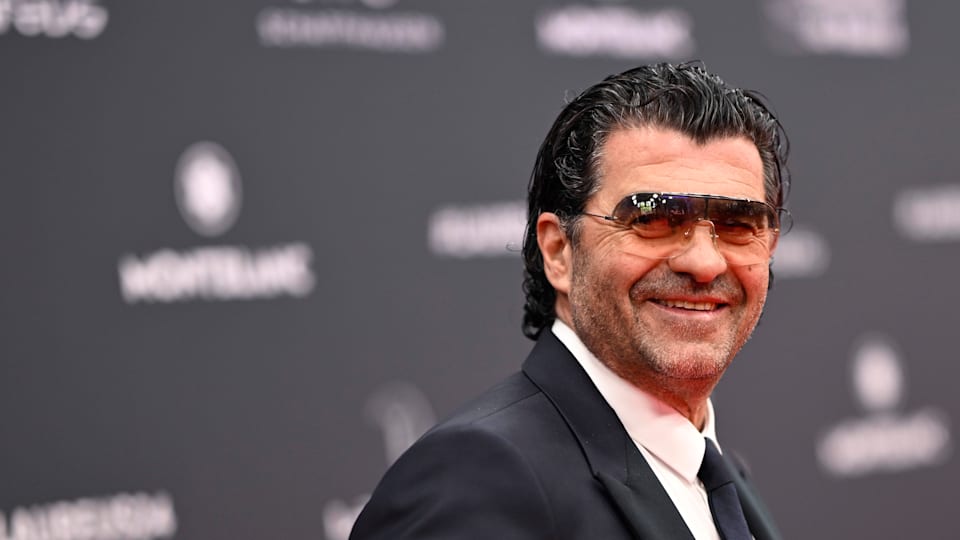Alberto Tomba warns 'special' Mikaela Shiffrin of fatigue risk, looks forward to ‘great’ Milano Cortina 2026 Winter Olympics
The Italian ski legend reflects on how the sport has changed since his time and explains why the next Winter Games in his home country will be unique.

Describing Alberto Tomba as merely one of the best alpine skiers in history is perhaps missing the point; the Italian was probably the first modern global star in the sport, elevating it to unprecedented heights.
From 1985 to 1998, the slalom and giant slalom specialist from San Lazzaro di Savena, Bologna, recorded 50 wins in World Cup races, and he’s currently fourth in the men’s all-time list, behind Austrians Hermann Maier (54), Marcel Hirscher (67), and the great Ingemar Stenmark of Sweden (86).
Tomba made his global breakthrough at the age of 21 by winning two Olympic gold medals at the Calgary 1988 Winter Olympics.
The event was so significant that even the popular Sanremo music festival paused to broadcast his second run live. "The Olympics are followed by billions around the world on television; it’s a unique event. I was fortunate that the timing aligned and they connected live. Those were the ‘golden years’ of the festival…," he recalls with a smile in an exclusive interview during the recent Laureus World Sport Awards in Madrid, Spain.
Nicknamed ‘La Bomba’ (The Bomb in Italian), Tomba kept millions of Italian fans tuning in for years. He added three more Olympic medals (one gold and two silvers) at the following Winter Olympics at Albertville 1992 and Lillehammer 1994, and two world titles at Sierra Nevada 1996.
And even 26 years after his retirement, his achievements are still celebrated nowadays: "I have received a lot of affection. I realise now that I’m still very loved. So thank you for the support and cheers over all these years. And perhaps I have the regret of having retired young at thirty-one.
"The last race, the last victory—it was beautiful, Crans Montana 1998."
The sport has changed a lot since he raced: “These are different times compared to those of (Ingemar) Stenmark and Gustavo Thoeni, my era, (Hermann) Maier and (Marcel) Hirscher, up to today with (Marco) Odermatt and (Mikaela) Shiffrin. Everything has changed, from the equipment to the competitors. I had a lot of competition; if you remember, every year I faced ten very strong rivals."
“I regret having retired because those 50 victories could have been many more. I was very tired and stressed, unlike other countries where the situation wasn't like Italy's.”
Alberto Tomba: I regret having retired so young...
Shiffrin is now considered the alpine poster girl. After breaking Stenmark’s all-time record for World Cup victories, she is now on track to reach the milestone of 100 World Cup wins.
“Congratulations to her. She is 'special' (slalom translates as 'slalom speciale' or 'speciale' in Italian) in both slalom and giant slalom. However, doing downhill skiing when you're physically tired is risky. She had an injury and had to stop, which allowed Lara Gut (Behrami) to take the lead in the overall World Cup standings. This is skiing.
Tomba: Forza Milano Cortina 2026!
Torino 2006 was the last time Italy hosted an Olympic event, and Tomba—after promoting the successful bid for the Piemonte city—carried the torch at the Stadio Olimpico during the Opening Ceremony. “What I regret is not having raced in Turin in 2006 at the age of 39. Let’s see if there is, hopefully, an Italian with the tricolor who wins at home,” he admitted.
The 57-year-old is also looking forward to the next Winter Olympic Games, Milano Cortina 2026, which will take place in familiar territories. “In Bormio, the men’s disciplines; in Livigno, Freestyle and Snowboarding; in Trentino, Val di Fiemme, Nordic skiing, including cross-country and ski jumping; and in Cortina, the women’s events. It’s almost time, and as I always say, unity is strength. The bobsled track was finally decided to be in Cortina. Come on, because from the Cortina 1956 Winter Olympics, these 70 years have just flown by.”
He concluded with a message of encouragement. “Good luck to all of you. Please, volunteers and organisers, see you soon. I’m counting on you, okay? You’ll see, these will be great Olympics.”
